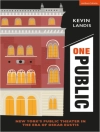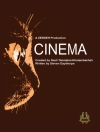This book explores the performances and politics of memory among a group of women war veterans in Ho Chi Minh City, Vietnam. Through ethnographic, oral history-based research, it connects the veterans’ wartime histories, memory politics, performance practices, recollections of imprisonment and torture, and social activism with broader questions of how to understand and attend to continuing transgenerational violence and trauma. With an extensive introduction and subsequent chapters devoted to in-depth analysis of four women’s remarkable life stories, the book explores the performance and performativity of culture; ethnographic oral history practice; personal, collective, and (trans)cultural memory; and the politics of postwar trauma, witnessing, and redress. Through the veterans’ dynamic practices of prospective remembering, ‘pain-taking’, and enduring optimism, it offers new insights into matrices of performance vital to the shared work of social transformation. It will appeal to readers interested in performance studies, memory studies, gender studies, Vietnamese studies, and oral history.
विषयसूची
1. Introduction: (Re)Performing the Past in Vietnam.- 2. Performing Survival, Ancestral Inheritance, and the Spirit of Optimism.- 3. Masquerading, (Re)Making Identities, and Familial Commemorations.- 4. Remembering Torture, Returning to Côn Đảo, and the Tradition of “Pain-Taking”.- 5. Answering to Transgenerational Violence.
लेखक के बारे में
Rivka Syd Eisner is Postdoctoral Researcher at the URPP Asia and Europe at the University of Zurich, Switzerland. Her writing has appeared in
TDR: The Drama Review,
Performance Research,
Cultural Studies,
Theatre Research International, and in edited volumes. She is co-editor of
Re-Enacting the Past: Heritage, Materiality and Performance (2016).












